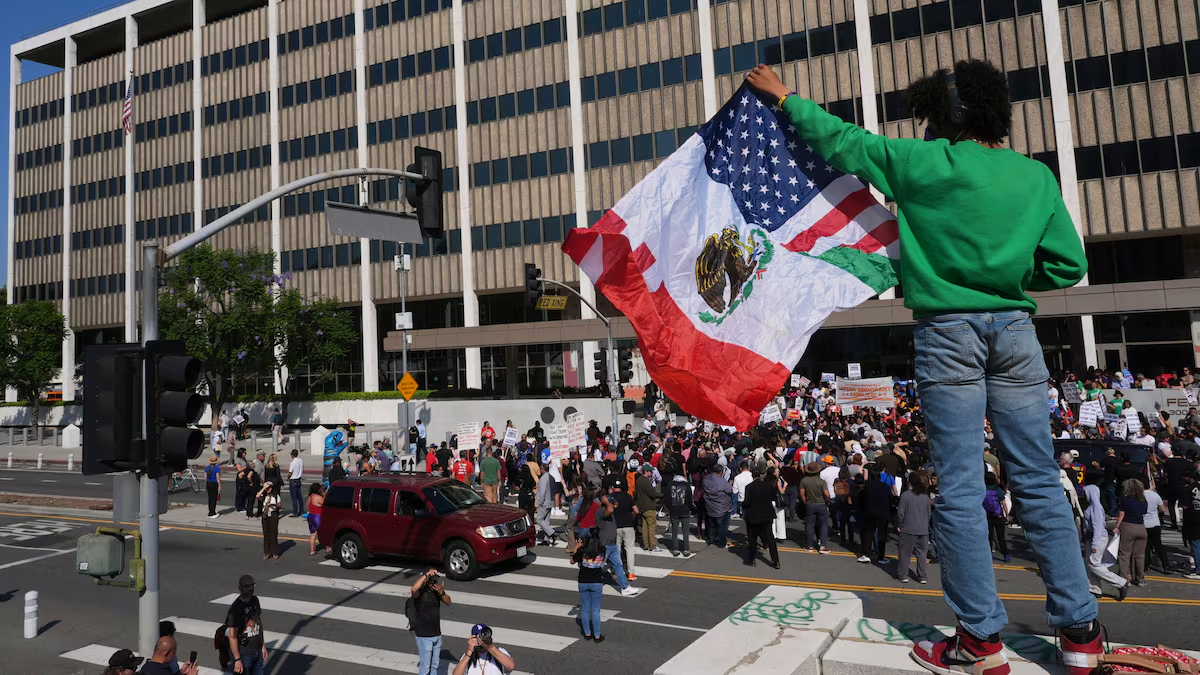- June 10, 2025
Extreme ICE Raids Threaten to Disrupt U.S. Communities and Undermine National Stability

In recent weeks, the U.S. government has dramatically escalated immigration enforcement actions across the country, with Immigration and Customs Enforcement (ICE) agents conducting large-scale raids in schools, workplaces, and public spaces. While federal officials claim these operations target individuals who pose a national security risk, the scale and intensity of the actions are raising alarms well beyond immigrant communities. Experts, advocates, and local leaders warn that these raids could have far-reaching consequences—not only for those directly targeted, but also for the nation’s economy, public trust, and civic stability.
Economic Fallout Across Industries
Immigrants—both documented and undocumented—make up a significant portion of the U.S. labor force in sectors such as agriculture, construction, hospitality, and elder care. The fear sparked by aggressive ICE raids is already causing labor shortages, as workers choose to stay home or leave their jobs to avoid detection.
“When you remove tens of thousands of workers without a plan to replace them, businesses suffer—and so do consumers,” says Dr. Elena Morales, an economist specializing in labor migration. “We’re already seeing disruptions in food supply chains and increased costs for basic services.”
In regions like California’s Central Valley and Texas’s Rio Grande Valley, farmers and small businesses report dramatic drops in productivity and revenue. Some employers are cutting back operations or shutting down entirely due to loss of workforce and consumer fear.
Erosion of Trust in Law Enforcement
The fallout isn’t limited to the economy. Communities that once worked closely with local police are now growing increasingly distrustful. In many cities, families are hesitant to call 911—even in emergencies—for fear that contact with local authorities could lead to deportation. This chilling effect undermines public safety and complicates the work of first responders.
“We’re asking people to trust us, but they’re afraid we’ll turn them over to ICE,” says Chief Luis Mendoza, a police chief in a predominantly Latino district in New Mexico. “That mistrust makes our job harder and puts everyone at greater risk.”
Several police departments have publicly criticized the federal raids, arguing that local law enforcement should not be used as extensions of federal immigration authorities. These tensions could further fragment already strained relationships between marginalized communities and government institutions.
Children and Schools Caught in the Crossfire
In one widely circulated incident, an ICE operation reportedly disrupted an elementary school graduation ceremony in a largely Hispanic neighborhood, sending families fleeing in panic. The school went into lockdown as terrified children wept and teachers struggled to maintain order. Even families with legal status were impacted, as few parents carry citizenship documents to a child’s school event.
“These raids are traumatizing children and breaking down the trust between families and public institutions like schools,” says social worker Alejandra Ruiz. “That damage will last for years.”
Undermining National Cohesion
Beyond localized impact, the aggressive deportation strategy threatens to fray the fabric of national unity. Critics argue that the current approach fosters a climate of fear and division, particularly among communities of color. The visibility of these raids—some recorded on social media—has sparked nationwide protests and prompted legal challenges from civil rights groups.
“There’s a difference between enforcing immigration laws and weaponizing them to terrorize entire populations,” says civil liberties attorney Rachel Singh. “The way these operations are being conducted sends a message that certain communities are not welcome or protected by the law.”
Conclusion: A Tipping Point for Policy and Public Sentiment
While the stated goal of the raids is national security, the collateral damage is undeniable. Economically, socially, and psychologically, the impact ripples far beyond those detained. If current trends continue, the long-term consequences could include lasting harm to public trust, worker shortages across industries, and deeper racial and social polarization.
As lawmakers and communities respond, the question remains: At what cost does this enforcement come—and is the nation willing to bear it?

